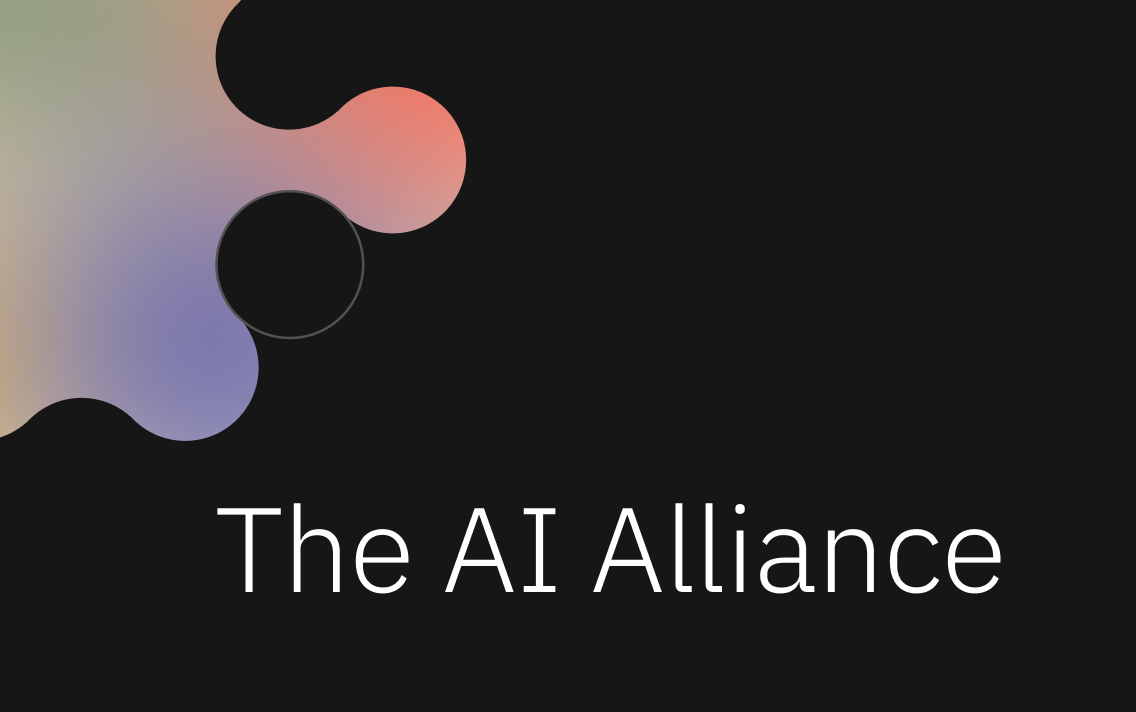Meta, IBM, AMD and more than 50 companies and universities form Open Source AI Alliance

Meta and IBM have launched a coalition of more than 50 AI companies and research institutions to promote open AI development and differentiate themselves from OpenAI and ChatGPT.
The AI Alliance, whose notable members include AMD, Intel, Oracle, Cornell University, and the National Science Foundation, is pooling resources to support open innovation and open science in the field of artificial intelligence.
Stable Diffusion company Stability AI, Sony, and other renowned universities such as Harvard, Tokyo, ETH Zurich, and Yale are also joining the alliance.
Notable is the participation of chipmaker Advanced Micro Devices (AMD), which wants to break Nvidia's dominance in AI chips. AMD will support an open AI ecosystem with its hardware, according to Forrest Norrod, executive vice president and general manager of AMD's Data Center Group.
AMD plans to unveil new AI hardware this week that will be a "strong alternative" to Nvidia's offerings, Norrod said. Nvidia is not a member of the AI Alliance.
Collaborative approach to a more open AI landscape
The Alliance places particular emphasis on the open-source approach. The goal is to create a more inclusive and collaborative AI ecosystem where advances in AI can be shared and built upon by a broader community.
The open-source approach involves the free exchange of technology and collaboration between large technology companies, academic institutions, and a community of independent programmers, according to the Alliance.
This model contrasts with proprietary AI models such as OpenAI's ChatGPT, which has been criticized for its closed approach and limited access to its underlying technology.
However, there are also strong arguments in favor of closed systems - primarily economic, but also safety and security.
The AI Alliance can be considered a direct response to the growing influence of organizations such as OpenAI and Microsoft, whose AI models dominate much of the current AI market.
First, through its applications like ChatGPT and DALL-E 3, and second, through widely used APIs that other AI companies use for their applications.
Although Meta's Llama open-source model is popular in the developer community, it is still far from the market penetration of OpenAI and Microsoft. Google has also been unable to counter the Microsoft-OpenAI alliance so far.
By promoting open-source AI, the AI Alliance aims to counter the influence of organizations like OpenAI and ensure that the AI ecosystem remains open and collaborative.
The Alliance hopes this will lead to more diverse and innovative AI solutions, as well as greater transparency and accountability in the development and deployment of AI technologies.
"If you think the future of AI is going to be determined by two, three or five institutions, you’re mistaken," said Darío Gil, IBM senior vice president and head of IBM Research. "I hope that it gives more clarity and confidence that the world of open innovation is a world to bet in."
AI News Without the Hype – Curated by Humans
As a THE DECODER subscriber, you get ad-free reading, our weekly AI newsletter, the exclusive "AI Radar" Frontier Report 6× per year, access to comments, and our complete archive.
Subscribe nowAI news without the hype
Curated by humans.
- Over 20 percent launch discount.
- Read without distractions – no Google ads.
- Access to comments and community discussions.
- Weekly AI newsletter.
- 6 times a year: “AI Radar” – deep dives on key AI topics.
- Up to 25 % off on KI Pro online events.
- Access to our full ten-year archive.
- Get the latest AI news from The Decoder.